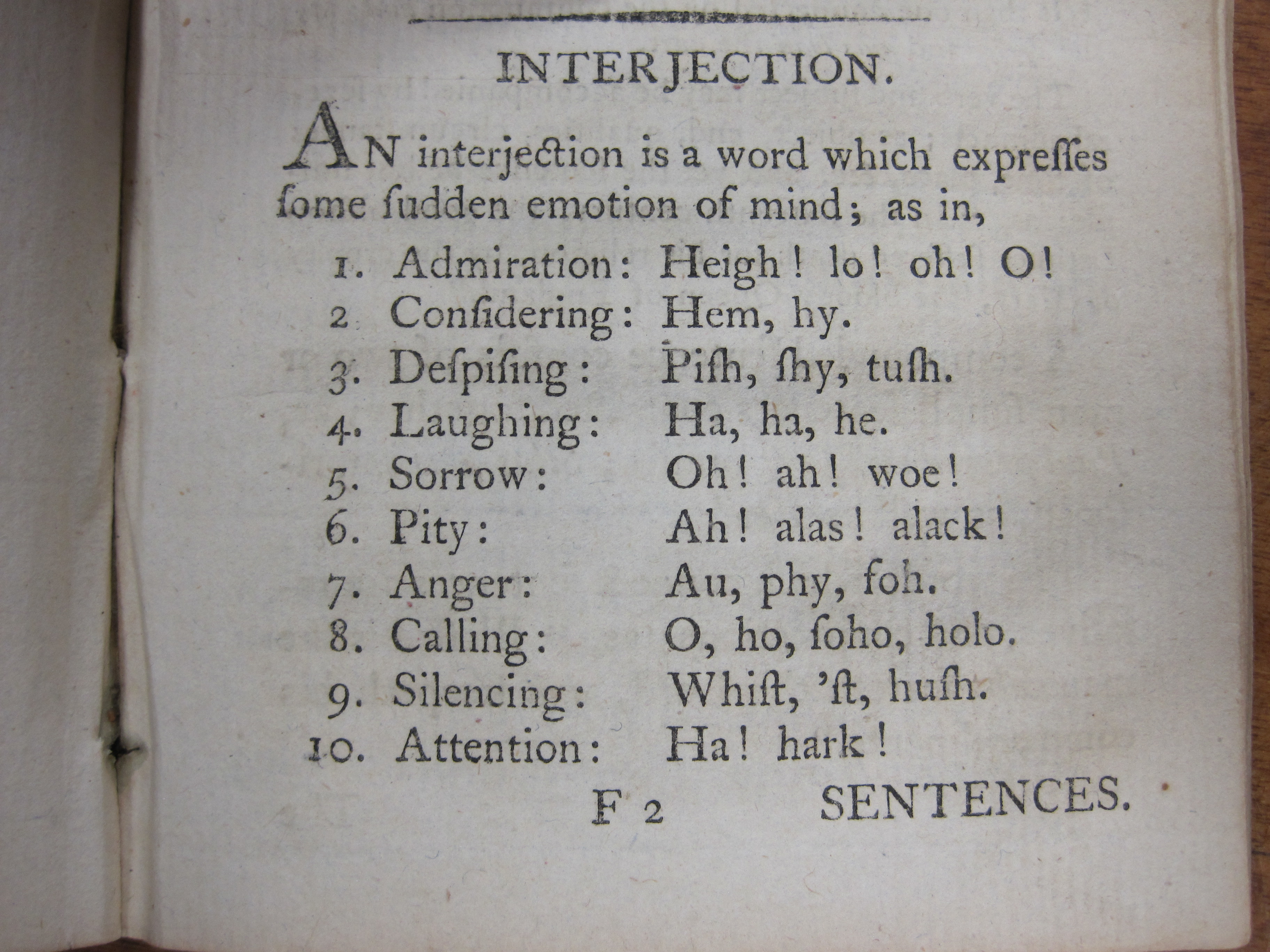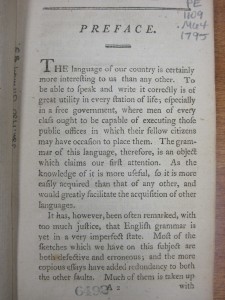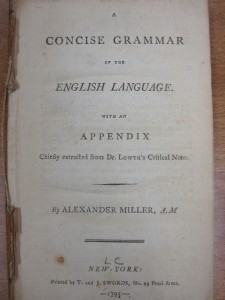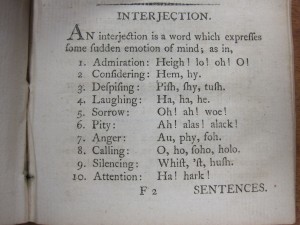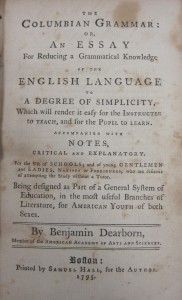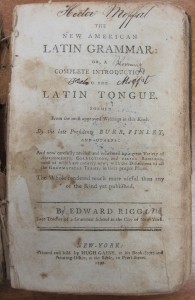Many of the grammar textbooks published in the late 18th century in the wake of the Revolutionary War are proudly and assertively American. In A Concise Grammar of the English Language, Alexander Miller argues for the importance of English grammar to a free society in which any citizen may hold public office.
Alexander Miller. A Concise Grammar of the English Language. New York: T. and J. Swords, 1795. First Edition.
In The Columbian Grammar, Benjamin Dearborn observes that people who understand grammar usually do so only because of their study of foreign languages and insists on the importance of studying English grammar, particularly for those citizens “who are not designed for an academical education” but who nevertheless have every reason to want to write and speak correctly.
Benjamin Dearborn. The Columbian Grammar. Boston: Samuel Hall, 1795. First Edition.
Despite the admirable and ambitious goals of educators, students did not always take their studies seriously: the title page of this copy of Edward Rigg’s The New American Latin Grammar features some impolite annotations from a reluctant young scholar who modified the subtitle to “A [Blooming] Complete Introduction to the Latin Tongue.”
Edward Rigg. The New American Latin Grammar. New York: Hugh Gaine, 1797. Third Edition.
All images are from the W. S. Hoole Special Collections Library and are not eligible for duplication, publication or sharing online without permission of the W. S. Hoole Special Collections Library. Please contact us at archives@bama.ua.edu or call 205.348.0500 with any questions. Thank you.
